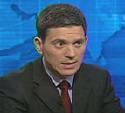[youtube]NVGGgncVq-4[/youtube]
Delegates at the opening ceremony for COP15 — the 15th Conference of the Parties to the UN Framework Convention on Climate Change in Copenhagen — had to sit through this video, so I think you should too. 😉 It’s a fitting introduction to the next couple of weeks. There are not enough hours in the day for me to be able to cover everything that’s happening, but I hope to be able to provide occasional perspective, and pointers to interesting material.
Some key issues:
- Can the global community pull together, or is the gap between the positions of the rich world and developing nations too big to bridge?
- If a global deal can be done, will it be able to deliver emissions reductions on the scale required to avoid damaging change?
- Will a deal build on Kyoto, or will a new framework emerge?
- What will all this diplomatic tussling mean for New Zealand’s interests, and what role will Nick Smith, Tim Groser and John Key play?
A lot of the underlying tensions are already emerging, as the leak of a negotiating position document — the “Danish text” agreed by key developed nations (including NZ) is causing outrage in developing countries. The Guardian spells it out:
The UN Copenhagen climate talks are in disarray today after developing countries reacted furiously to leaked documents that show world leaders will next week be asked to sign an agreement that hands more power to rich countries and sidelines the UN’s role in all future climate change negotiations.
The document is also being interpreted by developing countries as setting unequal limits on per capita carbon emissions for developed and developing countries in 2050; meaning that people in rich countries would be permitted to emit nearly twice as much under the proposals.
While the diplomatic games begin, commentators sharpen their pens. Bill McKibben thinks the whole thing will be a disaster:
It’s like nothing we’ve ever faced before — and we’re facing it as if it’s just like everything else. That’s the problem.
To help me keep an eye on all this, I’ll be using a number of resources. Apart from my usual array of RSS and Twitter feeds, I’ll be keeping an eye on the Guardian‘s amazingly diverse coverage (and blogs), the BBC (try the animated 800,000 years of climate history) and the COP15 web site (they provide good news coverage, and if you have the time, they’re providing live feeds to a lot of stuff). Press journalist David Williams is blogging his time at the conference, and the Science Media Centre has a page listing useful resources — aimed at the media, but there’s a lot of good stuff in there for the interested reader.

 And so it begins: the rest of the world is starting to notice the major disconnect between New Zealand’s much advertised “clean and green” image and the National-led government’s piecemeal demolition of sensible climate policy. In yesterday’s Guardian, one of Britain’s leading quality newspapers, Fred Pearce devotes his
And so it begins: the rest of the world is starting to notice the major disconnect between New Zealand’s much advertised “clean and green” image and the National-led government’s piecemeal demolition of sensible climate policy. In yesterday’s Guardian, one of Britain’s leading quality newspapers, Fred Pearce devotes his  A sidelight to Gareth’s
A sidelight to Gareth’s  New Zealand’s commitment to piffling and highly conditional emissions targets appears to have been weakened even further by chief negotiator Adrian Macey’s admission in an interview with Point Carbon that if the conditions aren’t met:
New Zealand’s commitment to piffling and highly conditional emissions targets appears to have been weakened even further by chief negotiator Adrian Macey’s admission in an interview with Point Carbon that if the conditions aren’t met: Carbon News has a
Carbon News has a